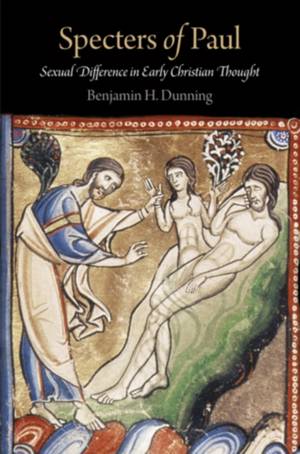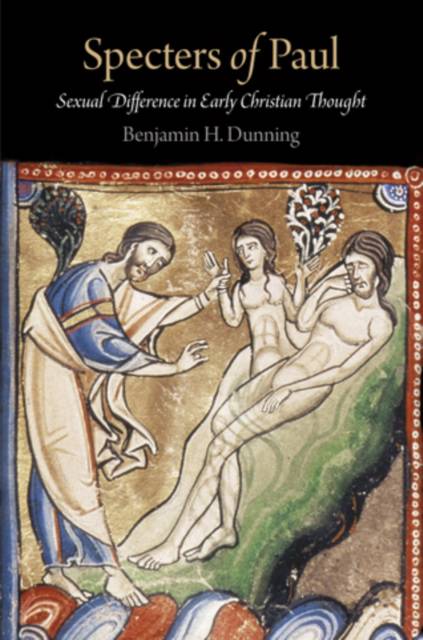
- Retrait gratuit dans votre magasin Club
- 7.000.000 titres dans notre catalogue
- Payer en toute sécurité
- Toujours un magasin près de chez vous
- Retrait gratuit dans votre magasin Club
- 7.000.0000 titres dans notre catalogue
- Payer en toute sécurité
- Toujours un magasin près de chez vous
100,95 €
+ 201 points
Description
The first Christians operated with a hierarchical model of sexual difference common to the ancient Mediterranean, with women considered to be lesser versions of men. Yet sexual difference was not completely stable as a conceptual category across the spectrum of formative Christian thinking. Rather, early Christians found ways to exercise theological creativity and to think differently from one another as they probed the enigma of sexually differentiated bodies.
In Specters of Paul, Benjamin H. Dunning explores this variety in second- and third-century Christian thought with particular attention to the ways the legacy of the apostle Paul fueled, shaped, and also constrained approaches to the issue. Paul articulates his vision of what it means to be human primarily by situating human beings between two poles: creation (Adam) and resurrection (Christ). But within this framework, where does one place the figure of Eve--and the difference that her female body represents? Dunning demonstrates that this dilemma impacted a range of Christian thinkers in the centuries immediately following the apostle, including Clement of Alexandria, Irenaeus of Lyons, Tertullian of Carthage, and authors from the Nag Hammadi corpus. While each of these thinkers attempts to give the difference of the feminine a coherent place within a Pauline typological framework, Dunning shows that they all fail to deliver fully on the coherence that they promise. Instead, sexual difference haunts the Pauline discourse of identity and sameness as the difference that can be neither fully assimilated nor fully ejected--a conclusion with important implications not only for early Christian history but also for feminist and queer philosophy and theology.Spécifications
Parties prenantes
- Auteur(s) :
- Editeur:
Contenu
- Nombre de pages :
- 264
- Langue:
- Anglais
- Collection :
Caractéristiques
- EAN:
- 9780812243079
- Date de parution :
- 07-03-11
- Format:
- Livre relié
- Format numérique:
- Genaaid
- Dimensions :
- 155 mm x 231 mm
- Poids :
- 498 g

Les avis
Nous publions uniquement les avis qui respectent les conditions requises. Consultez nos conditions pour les avis.






